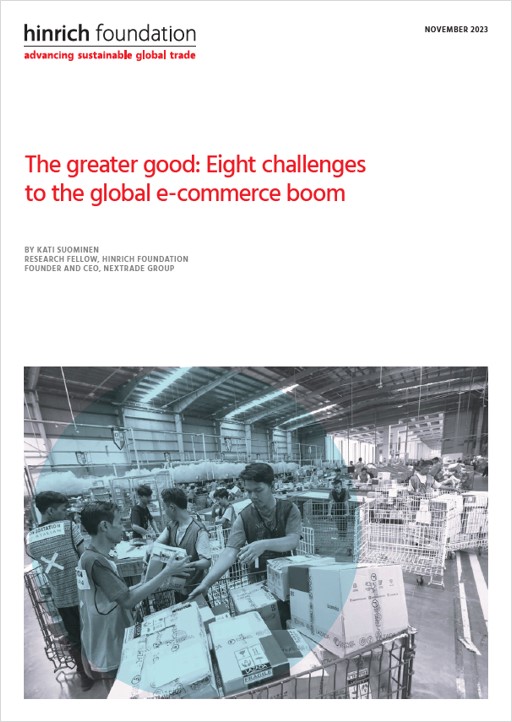Published 07 November 2023
The Asia-Pacific region has a historic opportunity to translate its explosive SME e-commerce to drive global growth further and inclusive economic development. But recent policy choices by governments around the world are threatening to stunt businesses from being able to fully ride the digital wave. This means global consumers - among them American voters - will likely have to bear higher end-prices.
E-commerce is booming in the Asia-Pacific and around the world, enabling small and medium enterprises (SMEs) in particular to expand their sales and diversify their exports. The boom has driven benefits well beyond balance sheets, opening up new avenues for participation in the work force by non-traditional societal groups such as women and leveling the playing field for the financially less-advantaged.
Yet sustained growth and the related socioeconomic gains from the e-commerce boom cannot be taken for granted. Governments at all levels have implemented and are eyeing new taxes on online sales. The rise of data localization practices could undermine SMEs' data protection for foreign customers and operations to improve their offerings. The global digital trade policy landscape is becoming increasingly fragmented, buffeted by geopolitical tensions. Climbing trade costs and the emergence of sustainability “green tape” compound longstanding struggles with manual paperwork and connectivity challenges.
Ongoing negotiations to set a working global framework of trade rules for e-commerce at the World Trade Organization suffered a setback after the US last month dropped its support for key planks of the free flow of cross-border data and forced source code transfer. The US Trade Representative’s move has triggered an outcry from business coalitions and even US Congressional leaders.
Research Fellow Kati Suominen assesses the risks and proposes how government policies can be reformed to address them.
© The Hinrich Foundation. See our website Terms and conditions for our copyright and reprint policy. All statements of fact and the views, conclusions and recommendations expressed in this publication are the sole responsibility of the author(s).







